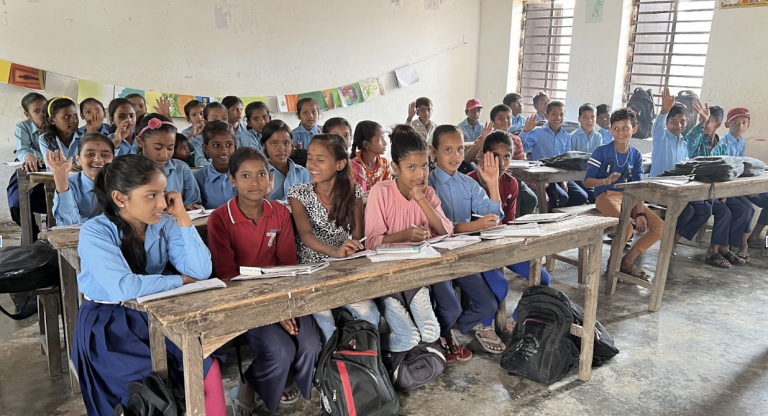Author: Situ Shrestha
Project Issues and Context
This project initiation is based on the contextual analysis that, despite the provisions for mandatory extracurricular activity programs in public schools, many Rautahat District public schools have not implemented extracurricular activities as an integral part of their teaching and learning activities. Similarly, low participation in extracurricular activities among schoolchildren indicates a possible higher rate of dropout, as well as the risk of dropout in the near future.
Project Research Coverage:
The main purpose of this project is to analyze how students can be retained in schools through a regular practice of extracurricular activities that also makes them healthy and participatory in their teaching and learning activities. This project also examines how students’ creativity and happiness can be enhanced through various extracurricular activities such as dance, sports, drawing, and the arts. In addition, this project-based initiative also evaluates the experiences of students after their participation in regular ECA in schools and develops comprehensive recommendations for schools and their teachers on how to use ECA to improve students’ interest in school.
Intervention:
The intervention in this project involved nine school teachers, especially those who are in charge of extracurricular activities, in nine schools and also included four monitoring and evaluation persons from Durabhagwati rural municipality, Yamunamai rural municipality, and Rajdevi municipality. The nine extracurricular activity in-charges were involved in this project-based intervention after they were provided with training and capacity building workshops to create an engaging environment for the children. For evaluating the effectiveness of ECA in these schools, four monitoring and evaluation personnel were also involved to monitor the extracurricular activities and the intervention work. The intervention also involved municipality officials and education officers, who shared information about the provision of extracurricular activities in every school and provided insight into how the schools of their respective municipalities functioned in accordance with Education Rule, 2059 BS Subsection 14. This aspect of the project focused on reinforcing the already-existing provision of extracurricular activities for children.
Anticipated outcomes:
The intervention project has helped the municipality and school members realize the importance of regular extracurricular activities in school. And to achieve this outcome, the project mainly engaged nine school teachers as ECA in charge of nine different schools in Durgabhagwati Rural Municipality, Yamunamai Rural Municipality, and Rajdevi Municipality.
All nine school teachers were appointed by the head teacher of their respective schools and were assigned by the education officers of all three municipalities. To monitor and evaluate the extracurricular activities, school teachers, and performance of the children, the project also involved four monitoring and evaluation persons (1 in Durgabhagwati Rural Municipality, 1 in Yamunamai Rural Municipality, and 2 in Rajdevi Municipality). In comparison to before and after the project’s implementation, analysis of the initiatives and interventions of this project has indicated that the regular practice of extracurricular activities in school has increased student participation as well as provided students with opportunities to learn many things that they do not get to learn in textbooks.
Activities such as playing sports or games develop sportsmanship and leadership abilities; using colors and holding pencils or brushes precisely when drawing or painting develops creativity; and making children joyful and comfortable in their school environment Along with this, the children are also learning from one another and enjoying different activities, such as debates and quizzes. Furthermore, this project anticipates that by effectively implementing extracurricular activities, students will not only enjoy attending school but will also have a positive perception of school, potentially lowering the risk of dropping out.



